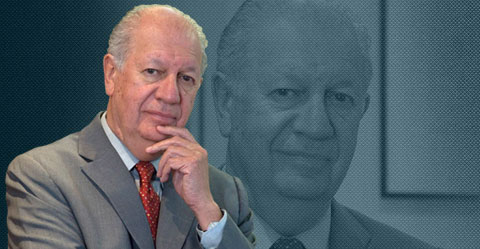A couple of weeks ago, a historic event brought an end to a very unpredictable year. Cuba and the United States restored diplomatic ties. Thus, from one day to the next, over 50 years of hostility were over and a new era of dialogue and rapprochement had commenced.
I celebrate this news at the end of 2014, which was a surprising year full of events that no-one could have predicted. When you think back to the preceding 365 days, you realize that they may not have changed the world but they did certainly present us with some new realities. On January first, 2014, who would have imagined that Russia could so easily annex Crimea? Who would have thought that the President of China, Xi Jinping would sign an agreement with Barack Obama to reduce greenhouse gas emissions by 20%? Before May, the term ISIS didn’t mean anything to anyone. And we’d never have thought that Germany would beat Brazil, the hosts, 7-0 in the semi-finals of the World Cup.
But let’s go back to the beginning. The year got off to an agitated start. Vladimir Putin annexed Crimea in an unprecedented act. The invasion, which destabilized Ukraine, provoked Western Europe and the United States into applying severe economic sanctions on Russia, which is now enduring its worst economic crisis since 1998.
ISIS, meanwhile, seemed to arise overnight to the surprise of every intelligence service in the world. The Islamic State became a major military force, invading both Iraqi and Syrian territory and today millions of people are under the sway of a caliphate. The rise of ISIS as a world power generated an unexpected, incredible chain of events. Long time bitter enemies Iran and the United States have even banded together to combat it.
If I had to name a person of the year, it would be the Chinese President Xi Jinping. After the 40 billion dollar contract for gas supplies he signed with Russia, Jinping achieved two major shifts in the world order. At an APEC summit he surprisingly met with the Japanese Prime Minister Shinzo Abe to seek an agreement over the Senkaku/Diaoyu archipelago dispute, and ended the summit with a historic agreement with Barack Obama to take specific measures according to a set timetable to combat climate change.
In the background, other events rumbled on. For instance, there were the civil war in Syria, the Euro crisis and the presidential elections in Latin America that saw the triumphs of Tabaré Vázquez, Evo Morales and Dilma Rousseff.
However, most of the events mentioned above didn’t exist at the beginning of the year and weren’t just hard to predict, but seemed unimaginable. 2014 showed us that a plane can be shot down with impunity, that a group of terrorists can kidnap over two hundred girls in Nigeria and that thousands of children can be orphaned by the Ebola virus. There is a critical lack of a civilizing force seeking to impose order and peace by respecting differences and establishing dialogs. We shall have to see how long this situation goes on during an—I think more predictable—2015.
Leave a comment



